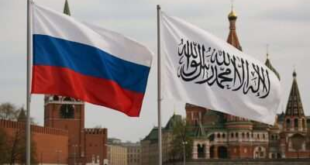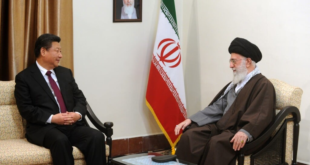The CPC’s centennial marks a historic breakthrough for China by far exceeding the predictions of most foreign observers.
In a nutshell, the CPC has achieved the twin collective goals of getting rid of poverty and standing up to bullying by foreigners.
The CPC is omnipotent in China and has become synonymous with the nation, the society and its politics.
This is the season to reread Edgar Snow’s Red Star Over China, the classic work on the birth of the communist movement in China. Alongside John Reid’s Ten Days That Shook the World, the gripping eyewitness account of the Bolshevik Revolution, Snow’s book was compulsive reading in the first flush of revolutionary enthusiasm as college students.
Then, inevitably, time took its toll. There is a famous work The Anatomy of Revolution (1939) by the American historian of France Crane Brinton which outlines the uniformities of four major political revolutions — the English Revolution of the 1640s, the American, the French, and the 1917 Russian Revolution. Brinton concluded how revolutions followed a life-cycle from the Old Order to a moderate regime to a radical regime, to Thermidorian reaction.
He likened the dynamics of revolutionary movements to the progress of fever. Brinton’s book appeared a full decade before the Chinese revolution. However, although much water has flowed down the Yangtze since the “Thermidorian reaction” set in, there is still keen delight in the precarious notions the Revolution left behind in China, which are both dramatic and didactic and inspire animated discussion.
Without doubt, the Communist Party of China (CPC), whose centennial falls on 1st July, has a great deal to celebrate. It took almost three decades after the revolution (1949) for the CPC to realise that development, not ideology, is the hard truth.
In Deng Xiaoping’s words, “It doesn’t matter if a cat is black or white so long as it catches mice.” Those poignant words signalled that China was changing course and embarking on a radically new development path required to meet the country’s actual conditions at that point in time. Deng’s reform and opening up in 1978 unshackled China from the ideological straitjacket.
When Mao died in 1976, China’s per capita GDP was more or less that of Bangladesh. Today, the United States feels greatly agitated that China is the world’s second largest economy already, and well set to overtake it before the end of this decade.
The World Bank estimates that the CPC lifted 800 million people out of absolute poverty in the four decades since 1978, a stupendous feat in human history.
In 2012, Xi Jinping as the new General Secretary of the CPC Central Committee pledged that the 100 million people who were still below poverty line would move up the ladder by 2020. He redeemed that pledge last December as China became completely free of poverty.
To spearhead the poverty alleviation programme, from 2013 to 2020, the CPC selected and dispatched as first Party secretaries and resident working team members to rural and remote areas to accurately identify each and every poor family and poor village, and implement targeted projects nationwide to comprehensively improve their lives and livelihood.
It is precisely this unique Party-State system that explains China’s epochal rise. The CPC is omnipotent in China and has become synonymous with the nation, the society and its politics. Succinctly put, national development flows from the robust pursuit of long-term goals set by the CPC.
The Party system is based on educated, competent functionaries who have risen to the top with grassroots experience in multiple provinces that moulded their national outlook, which makes the top leadership collegiate and helps consensus-building on major national issues.
Indeed, it strengthens cohesion and ensures continuity in the party as it transits from one generation to another.
The annual conclave at the seaside resort of Beidahe testifies to the continuity and change in orderly transition — something which no other communist party in the world could emulate.
The CPC’s centennial marks a historic breakthrough for China by far exceeding the predictions of most foreign observers. In a nutshell, the CPC has achieved the twin collective goals of getting rid of poverty and standing up to bullying by foreigners.
The CPC could do it only by shunning the ideological dogmatism of Marxism-Leninism and developing “socialism with Chinese characteristics” through a continuous process of experimenting, innovating, and correcting and overcoming mistakes. No doubt, the CPC drew appropriate lessons out of the collapse of the Soviet Union.
The CPC realised that its political legitimacy ultimately lies in building a strong economy and constantly raising people’s living standards in a climate of stability and predictability. Today, the nation brims with hope for a still better tomorrow.
The CPC cannot be simply categorised nor compared to any other political party in history.
In addition to its wide membership (95 million), the party is also unique in its attributes. Apart from being a super political force, it also defines China’s institutional form and state form.
Unlike in the West where a political party may maintain the balance of political power for a while, the CPC undertook the mission of leading the Chinese people generation by generation.
Evidently, the Party clearly exceeds the cognitive framework provided by Western political knowledge and experience.
In a stirring editorial today, the People’s Daily wrote,
“In the most critical moments of modern times, Chinese Communists turned to Marxism-Leninism. Adapting the theories to China’s actual conditions, Chinese Communists invigorated the great civilization created by the nation over thousands of years with the power of the truths of Marxism. The Chinese civilization again shined with tremendous spiritual strength.
“One hundred years on, Marxism has profoundly changed China, while China has also greatly enriched Marxism.
“The CPC upholds the unity of emancipating the mind and seeking truth, as well as the unity of the consolidation of tradition and innovation, and has constantly opened new horizons for Marxism.”
However, China is not prescriptive.
The CPC’s path is defined by China’s civilisation foundation of thousands of years, which instills deep into the collective consciousness the special meaning of a unified political system, prevents destructive competition and regional divisions, and maintains national security to the Chinese society.
The great inclusiveness of Chinese society the CPC represents has no parallel.
That is why it is a delusional thought that through Western political experience, China can be forcibly transformed.
The West is in denial mode as regards the validity of China’s exploration of its own development path.
Beijing does not present the CPC as a model for the rest of the world.
On the contrary, the CPC’s explorations are carried out on the Chinese soil and the Party draws inspiration out of its own experience of modernisation and from the resources of China’s own civilisation.
So, what is this Indo-Pacific ‘itch’ about?
Plainly put, it is the manifestation of a seething rivalry borne partly out of the obsessive US exceptionalism but largely due to the growing sense of envy and unease that another country is fast closing ranks and that might spell the doom for America’s global hegemony.
Despite all bravado, the point is the US is hard put to compete with China’s dynamic, innovative and rapidly growing economy that is already world’s number one in terms of purchasing power parity.
Professor Stephen Watt at Harvard Kennedy School tweeted today, “A lot of US foreign policy experts are worried about China’s rise. Me too. But how many of these experts have reflected on the fact that China hasn’t been fighting wars in lots of places, while steadily gaining greater wealth, power and influence?”
Quintessentially, what the US faces is a self-invited predicament.
The wasteful wars and military interventions have drained trillions of dollars worth resources, which could have been diverted to the restoration and renewal of the country’s dilapidated economic infrastructure and for the redressal of accumulated social contradictions ranging from deep-rooted racism, violence, inequities in wealth and economic disparities, apart from a dysfunctional political system with hopelessly outdated electoral laws that hamper people’s empowerment.
From President Xi’s address in Beijing today, it is clear that China is determined not to capitulate to the US bullying.
As he put it, the Chinese nation carries no aggressive or hegemonic traits in its genes but will never allow foreign bullying or attempts at suppression or subjugation.
In sum, the “founding spirit” of the CPC developed by the pioneers of Communism in China will be a force to reckon with in world politics.
 Eurasia Press & News
Eurasia Press & News



